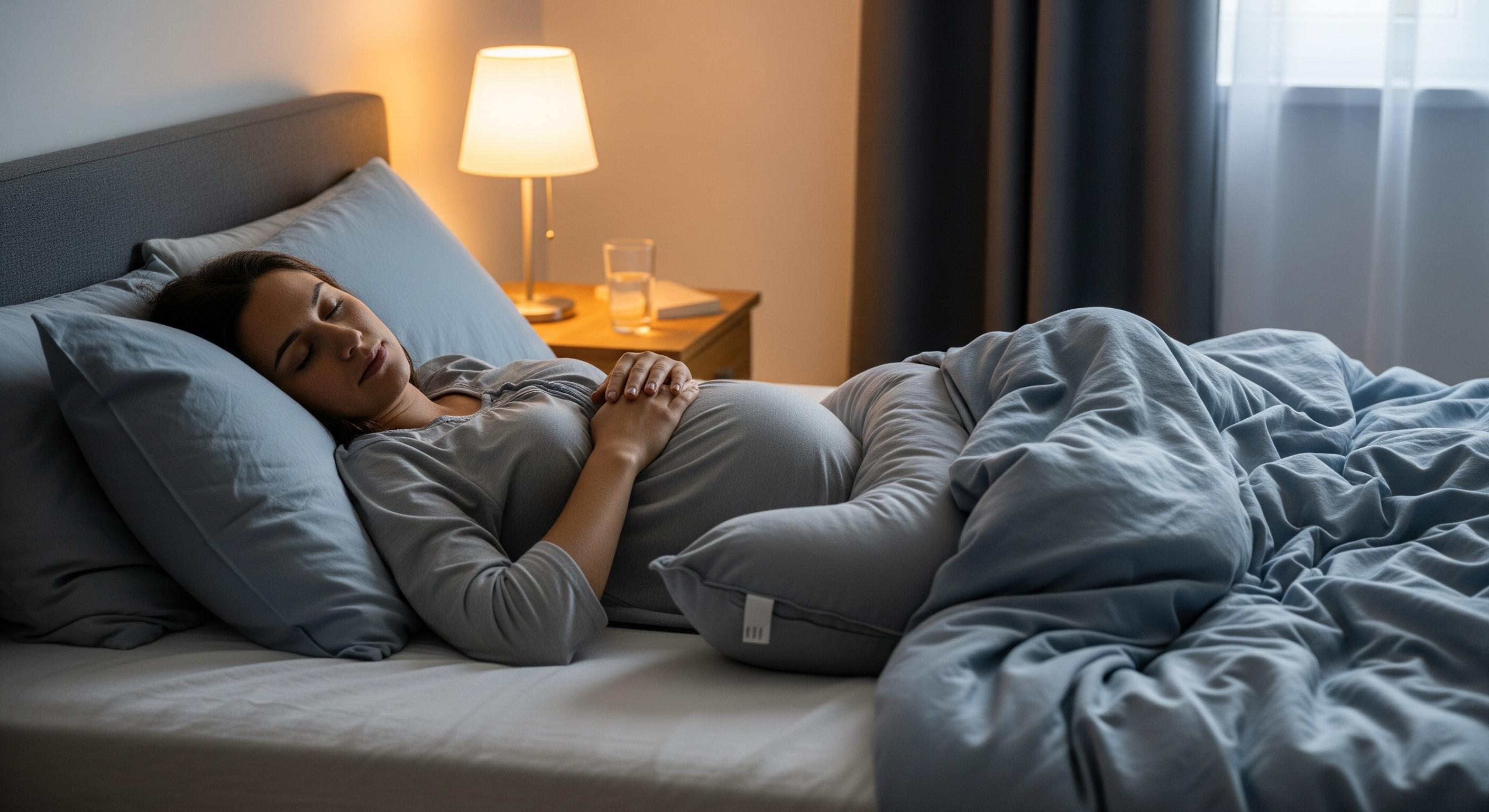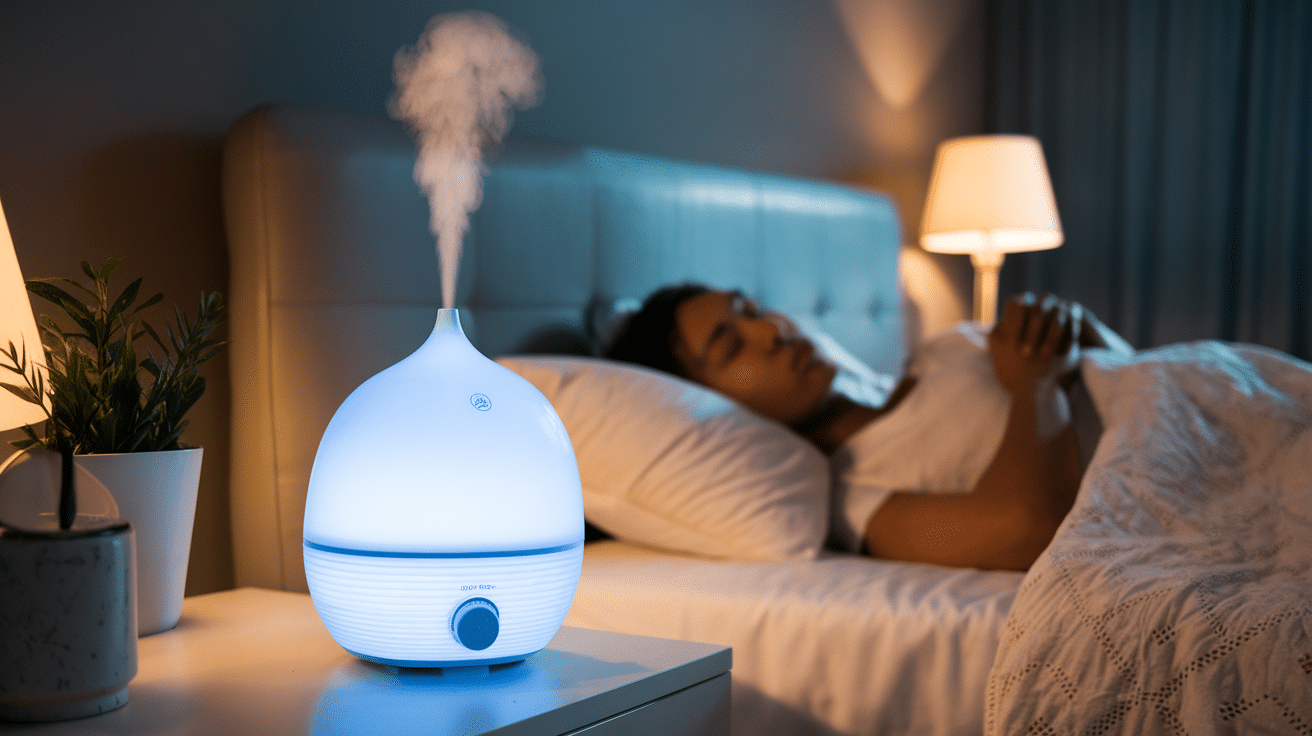Ever gone to bed sleeping quietly, only to be told the next morning that you started snoring out of nowhere? I’ve had that happen, and it can feel strange, even a little worrying.
If you’ve been asking yourself, “Why am I snoring all of a sudden?” you’re not the only one out there. Many people notice this change without knowing why.
Sudden snoring can happen for all kinds of reasons, from small lifestyle changes to underlying health issues.
I’ll walk you through what might be causing it, when it could be a sign of something more serious, and practical steps you can take to reduce it. Let’s figure out what’s really going on and how to get back to quieter nights.
Why am I Snoring All of a Sudden?
Snoring happens when air can’t move easily through your throat while you sleep. When that air gets blocked, the soft parts in your throat, like your tongue or the back of your mouth, start to vibrate. That’s what makes the snoring sound.
You might snore if your throat muscles are too relaxed, your nose is stuffy, or you sleep on your back. Things like being tired, drinking alcohol, or gaining weight can also make it worse.
Not everyone snores. Some people have wider airways, so air moves through more easily. Others may have smaller or softer airways that make snoring more likely.
It mostly comes down to how your body is built and how you sleep.
Why Am I Snoring Now?
Sometimes snoring starts without warning, but there’s usually a simple reason behind it. Here’s a breakdown of what might be going on with your body or environment:
1. Weight Gain Around the Neck

Even a few extra pounds can put pressure around your neck and throat. This tightens the space where air moves when you sleep.
Less room means more chance for tissues to rub together and make noise. You don’t have to gain a lot; small changes can still lead to new snoring.
2. Nasal Congestion or Allergies

If your nose is stuffed up from a cold, dust, or pollen, it’s harder to breathe through it. That forces you to breathe through your mouth, which often leads to snoring.
Swollen nasal tissues can also block airflow, making things worse.
3. Sleeping on Your Back

When you lie on your back, gravity pulls your tongue and soft tissues downward. That can block your airway and cause snoring.
A simple fix? Try sleeping on your side. Body pillows or sleep positioners can help keep you in place all night.
4. Alcohol or Sleep Medications

Drinks or sleep medications might help you drift off, but they also relax the muscles in your throat more than usual. When these muscles loosen, your airway can narrow, making snoring more likely.
If you notice this happens often, try cutting back, especially in the evening, to see if your snoring improves.
5. Smoking or Air Irritants

Smoke, pollution, or strong smells can irritate your nose and throat. This causes swelling and blocks the airflow, leading to snoring.
If you smoke, quitting can help your breathing and your sleep. Keeping your room clean and air fresh also makes a big difference.
6. Aging and Muscle Tone

As you get older, the muscles in your throat can weaken. Weaker muscles don’t hold your airway open as well, so it’s easier for things to vibrate and create sound.
That’s why some people start snoring later in life, even if they never did before.
7. Hormonal Changes

Hormones can affect how soft tissues behave in your body. During pregnancy, for example, your body holds more fluid, which can cause swelling in your airways.
In menopause, changing hormone levels may lead to relaxed throat muscles, another common snoring trigger.
8. Sleep Deprivation

Not getting enough rest can make your throat muscles even more relaxed than usual when you do finally sleep. That makes it harder for your body to keep your airway open.
So if you’ve been running on little sleep, that might be the reason for your sudden snoring.
Is Sudden Snoring a Sign of a Health Problem?
Most of the time, snoring isn’t serious. But sometimes it can point to something more important going on with your health.
Here are a few issues to keep in mind if your snoring came on quickly or has changed a lot:
- Sleep Apnea: Sleep apnea is a condition where your breathing stops and starts during sleep. Your throat may fully or partly close, blocking airflow. It can cause loud snoring, choking sounds, or gasping during the night.
- Enlarged Tonsils or Adenoids: Tonsils and adenoids are soft tissues in your throat and behind your nose. If they’re too large, they can block your airway and cause snoring. This is especially common in kids, but it can happen to adults, too.
- Deviated Septum or Nasal Polyps: If you have a crooked nasal septum (the wall that divides your nose) or soft growths called polyps, your airflow can be blocked. These issues can show up over time or after an injury.
If your snoring feels sudden, loud, or just “off,” it’s worth paying attention; your body might be trying to tell you something.
When Should You Be Concerned About Snoring?
Most snoring is harmless, but sometimes it can be a sign of something more serious. If your snoring is very loud, happens every night, or includes pauses in breathing, choking, or gasping, it’s time to pay attention.
You should also be concerned if you feel tired during the day, even after a full night’s sleep. These signs could point to sleep apnea or another health issue.
If you notice these patterns, or someone else points them out, it’s a good idea to talk to your doctor or a sleep specialist.
They can help you figure out what’s going on and suggest the right steps to improve your sleep. Don’t ignore snoring that suddenly gets worse or feels unusual.
How to Reduce or Stop Snoring
You don’t have to live with snoring forever. A few simple changes can often make a big difference. Here are some things you can try at home to sleep more quietly and breathe more easily:
1. Change Sleeping Position

Sleeping on your back can cause your tongue and soft tissues to fall backward, blocking airflow and causing snoring. Try sleeping on your side instead.
It keeps your airway more open and helps reduce the noise. You can also use a wedge pillow or slightly raise the head of your bed. These simple changes may help you breathe better and snore less through the night.
2. Use a Humidifier

Dry air can make your nose and throat feel irritated, which can lead to snoring. A humidifier adds moisture to the air, helping your airways stay calm and clear.
It’s especially helpful during the winter or if you live in a dry area. Using a humidifier regularly can make breathing easier at night and reduce how often or how loudly you snore.
3. Avoid Alcohol Before Bed

Drinking alcohol before bed can relax the muscles in your throat too much, making snoring more likely. Try to avoid alcohol for at least 2 to 3 hours before you go to sleep.
Giving your body time to process it can help keep your airway more open. Cutting back on evening drinks may help you sleep more quietly and feel more rested in the morning.
4. Treat Allergies or Congestion

Stuffy noses force you to breathe through your mouth, which often leads to snoring. Allergies, dust, or colds can block your nasal passages.
Try using a saline spray, antihistamines, or a nasal rinse before bed. These can clear your nose and help air move more easily. Treating congestion may help you snore less and breathe better throughout the night.
5. Try Snoring Aids

If basic changes don’t help, snoring aids might be worth a try. Nasal strips gently open your nostrils, while mouthpieces hold your jaw or tongue in place.
These tools help keep your airway open as you sleep. They’re easy to use and can make a big difference for some people. Talk to your doctor or try a few options to see what works best for you.
Finding what works for you might take a little trial and error, but small changes can lead to quieter, better sleep.
Conclusion
If you’ve been asking yourself, “Why am I snoring all of a sudden?”, you’re not the only one. The good news is that most snoring starts for simple reasons, like allergies, being extra tired, or sleeping on your back.
Think about what’s changed in your routine and see if something here fits. Try a few tips and see if things get better. If you’re still not sure, track your sleep and talk to a doctor or sleep expert. It’s always better to ask than to guess.
Snoring doesn’t always mean something serious, but it’s worth checking out. If this helped you, take a look at my other blogs on the website. You’ll find more easy tips to help you sleep better every night.









